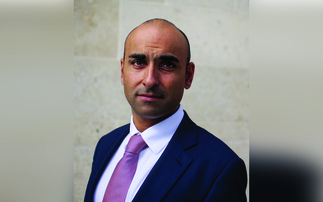Marte Borhaug explores the ethical dilemmas and unintended consequences that can result from trying to do the right thing.
A package arrives in the post. A surge of dopamine courses through me: my expectations for this delivery are high. It should be a source of delight and pride; the result of endless hours researching the sustainability of straws. Aware I should get out more, I am nevertheless proud of the maze of information regarding suppliers and materials I have trawled through in the weeks leading up to this moment. I feel confident no stone has been left unturned.
My confidence is misguided.
I open the package and stare in disbelief. To my horror I find the plastic-free straws are wrapped in - yes, you guessed it - plastic! Worse still, despite assurances to the contrary, I find they have travelled thousands of miles, crossing continents to reach my door. Their carbon footprint alone is akin to that of the average citizen of a small country for a whole year.
This story is not meant to garner pity. It is merely another example to add to the moral scrapheap of decisions I have made; another example of the complexity involved in trying to do the right thing. I could have easily picked another, like the challenges I faced trying to go vegan.
My job requires me to think deeply about such matters. It can be overwhelming. At times I feel as if I need a degree in moral philosophy - or at least a sturdy handbook - to ensure I stay within the tramlines of good behaviour. But it is these moral dilemmas that should anchor our professional conduct; we should not shy away from them. Checking personal values at the office door will not end well. If we do, there are deeper issues at play - we should seriously question whether we have found the right match.
The rabbit holes of misinformation, cognitive overload and unintended consequences
Part of the problem is we have never had to measure the consequences of our actions as a species until now, because there have never been so many of us. Had the first million humans invented plastic, they would not have had to deal with the same fallout as 7.7 billion.1 Everything we now do can add to our footprint and we have to think hard about our choices. And while in theory the right information and data exist to help us make sensible choices, all too often our view is obscured by reams of irrelevant and distracting diversions.
This is one of the challenges of living in a complex world. As soon as we look a fraction harder, it seems almost every action we take to reduce our impact trails a host of unintended consequences in its wake. A combination of two forces are at work: some of our actions can lead to unintended harm, while in other cases it is a question of choosing between two goods - or the lesser of two evils - like meat versus avocados.
When it comes to the environment, worrying about the big picture of climate change can make us lose sight of smaller, closer effects; such as the loss of local wildlife that is happening irrespective of climate change and that can wreak havoc with our ecosystems in the long run, as Jonathan Franzen argues with passion in this New Yorker article2.
This is not just a personal battle. Staying with the theme of plastics, companies now need to ensure the supply chain of paper straws is itself sustainable and there is adequate infrastructure to recycle them. The push to ban plastic straws has become emblematic of our concerns around environmental damage, yet recent articles in Wired3 and The Atlantic4 both demonstrate the move needs careful consideration.
There has always existed a delicate interplay between manufacturers and consumers. Ultimately, the former are subservient to the latter, as we can vote with our respective wallets and make our feelings known through the corporate balance sheet. We all need to take more responsibility and technology will undoubtedly provide us with some wayfinding tools, like CoGo, an app that helps me choose companies, coffee places and restaurants that align with my values.
References
- Worldometers based on UN estimates, August 2019
- Kenneth Rogoff, 'The Case for a World Carbon Bank', Project Syndicate, July 2019
- 'Sustainable Development Goals' Division for Sustainable Development Goals, October 2019
- Sarah O'Connor, 'Executive pay transparency will push workers to demand more money', Financial times, September 2017
Important information
Except where stated as otherwise, the source of all information is Aviva Investors Global Services Limited (Aviva Investors) as at October 2019. Unless stated otherwise any view sand opinions are those of Aviva Investors. They should not be viewed as indicating any guarantee of return from an investment managed by Aviva Investors nor as advice of any nature. Information contained herein has been obtained from sources believed to be reliable but has not been independently verified by Aviva Investors and is not guaranteed to be accurate. Past performance is not a guide to the future. The value of an investment and any income from it may go down as well as up and the investor may not get back the original amount invested. Nothing in this document, including any references to specific securities, assets classes and financial markets is intended to or should be construed as advice or recommendations of any nature. This document is not a recommendation to sell or purchase any investment. In the UK & Europe this document has been prepared and issued by Aviva Investors Global Services Limited, registered in England No.1151805. Registered Office: St. Helen's, 1 Undershaft, London, EC3P 3DQ. Authorised and regulated in the UK by the Financial Conduct Authority. Contact us at Aviva Investors Global Services Limited, St. Helen's, 1 Undershaft, London, EC3P 3DQ. Telephone calls to Aviva Investors may be recorded for training or monitoring purposes. In Singapore, this document is being circulated by way of an arrangement with Aviva Investors Asia Pte. Limited for distribution to institutional investors only. Please note that Aviva Investors Asia Pte. Limited does not provide any independent research or analysis in the substance or preparation of this document. Recipients of this document are to contact Aviva Investors Asia Pte. Limited in respect of any matters arising from, or in connection with, this document. Aviva Investors Asia Pte. Limited, a company incorporated under the laws of Singapore with registration number200813519W, holds a valid Capital Markets Services Licence to carry out fund management activities issued under the Securities and Futures Act (Singapore Statute Cap. 289) and Asian Exempt Financial Adviser for the purposes of the Financial Advisers Act (Singapore Statute Cap.110). Registered Office: 1Raffles Quay, #27-13 South Tower, Singapore 048583.In Australia, this document is being circulated by way of an arrangement with Aviva Investors Pacific Pty Ltd for distribution to wholesale investors only. Please note that Aviva Investors Pacific Pty Ltd does not provide any independent research or analysis in the substance or preparation of this document. Recipients of this document are to contact Aviva Investors Pacific Pty Ltd in respect of any matters arising from, or in connection with, this document. Aviva Investors Pacific Pty Ltd, a company incorporated under the laws of Australia with Australian Business No. 87 153 200 278 and Australian Company No. 153 200 278, holds an Australian Financial Services License (AFSL 411458) issued by the Australian Securities and Investments Commission. Business Address: Level 30, Collins Place, 35 Collins Street, Melbourne, Vic 3000
The name "Aviva Investors" as used in this presentation refers to the global organization of affiliated asset management businesses operating under the Aviva Investors name. Each Aviva investors' affiliate is a subsidiary of Aviva plc, a publicly- traded multi-national financial services company headquartered in the United Kingdom. Aviva Investors Canada, Inc. ("AIC") is located in Toronto and is registered with the Ontario Securities Commission ("OSC") as a Portfolio Manager, an Exempt Market Dealer, and a Commodity Trading Manager. Aviva Investors Americas LLC is a federally registered investment advisor with the U.S. Securities and Exchange Commission. Aviva Investors Americas is also a commodity trading advisor ("CTA") and commodity pool operator ("CPO") registered with the Commodity Futures Trading Commission ("CFTC"), and is a member of the National Futures Association ("NFA"). AIA's Form ADV Part 2A, which provides background information about the firm and its business practices, is available upon written request to: Compliance Department, 225 West Wacker Drive, Suite 2250, Chicago, IL 60606. RA19/1230/01102020










